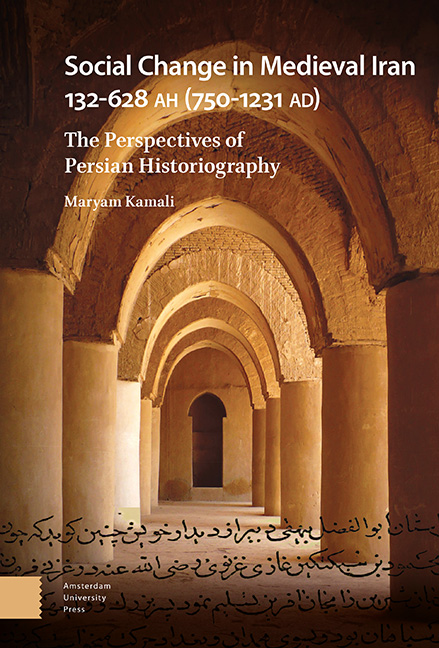Book contents
Summary
History is the mediated account of past events in human life, an image of a series of events narrated in oral and written reports from multiple and sometimes conflicting points of view. It originates in ancient times and continues to accumulate data points even up to the present moment. Social change is one of the critical topics in the humanities today, including history and sociology, and its importance needs to be taken into consideration in interdisciplinary studies. This research is based on rereading Persian history using sociology and historical research theories, with a new perspective on the study of Iran's social changes in medieval times from the rise of the ʿAbbāsid Caliphate (132–656 AH/750–1258 AD) to the collapse of the Khwārazmshāhi (469–628 AH/1077–1231 AD).
The written legacy of the historians writing in Persian reflects their accounts of the process of social change in its close connection with historical events, to the extent that history may not even be conceived without the concept of social change. However, the search for historical texts, especially when they are at a great distance in time from when they were written, is not easy for the humanities researcher because it requires familiarity with the science of history and a closer look at the historical texts. The history researcher is responsible for finding statements in the texts that reveal social changes occurring in specific periods and the changes whose impacts and replicas can be traced through the texts of subsequent generations of historians. To achieve this objective, they need to be equipped with research methods and a good understanding of the essential issues in humanities theories.
This work aims to discover the causes and foundations of social change, one of the primary concepts common to the science of history and sociology in medieval Iran (132–628 AH/750–1231 AD), and to examine the links between these changes diachronically. The study claims that the key to the treasures of the past can be traced back to the illumination of the modern disciplines of the humanities. A key lost in the past may open up multiple vistas for searching deeper into human and political history.
- Type
- Chapter
- Information
- Social Change in Medieval Iran 132-628 AH (750-1231 AD)The Perspectives of Persian Historiography, pp. 11 - 38Publisher: Amsterdam University PressPrint publication year: 2023

